Wildlife officers were taken aback when they discovered 10 extraordinarily rare black seal pups in England’s largest grey seal colony on the north Norfolk coast.
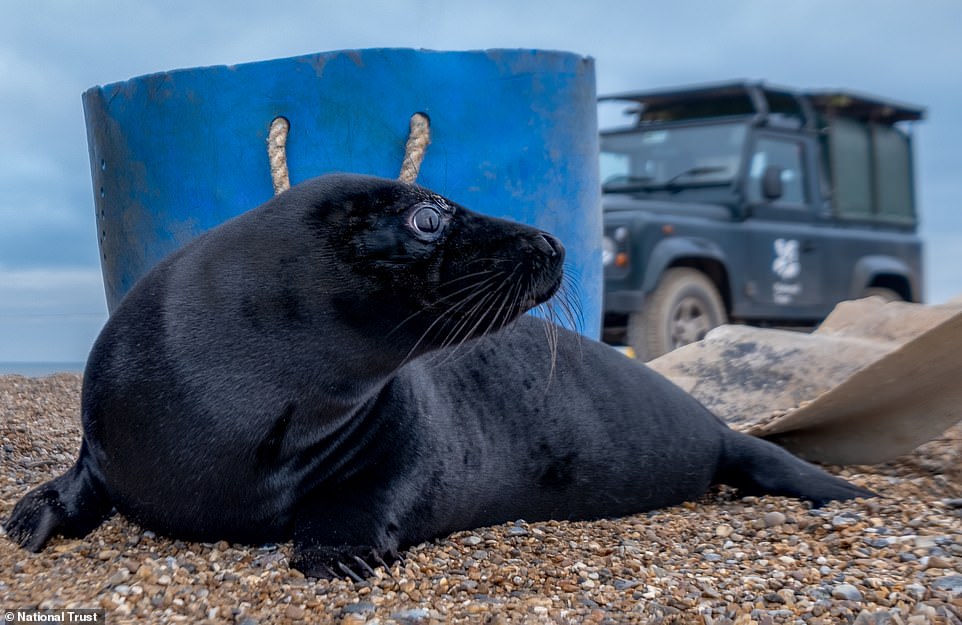
Grey seal pups are born with a white coat that sheds in about two to three weeks, revealing a grey coat beneath the white skin.
According to the National Trust, roughly one in 400 grey seals have a velvety black coat instead.
Melanism refers to the enhanced growth of the dark-colored pigment melanin in these seals, which are known as melanistic seals.
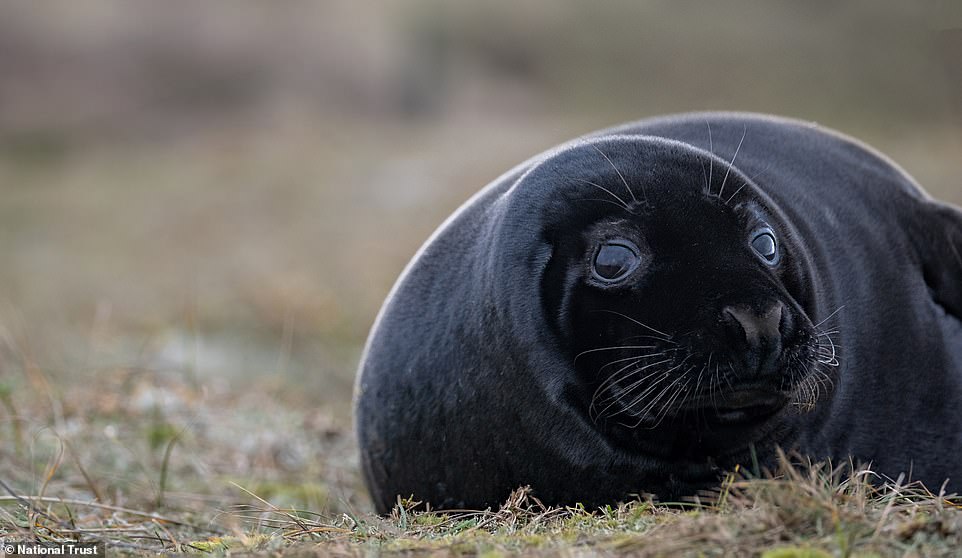
During the winter’s pupping season at Blakeney Point, rangers saw ten of the melanistic pups, and volunteer warden Hanne Siebers was able to get some photos of them.
“Typically, grey seals are born white but their coat changes color when they shed their fur,” explained The National Trust.
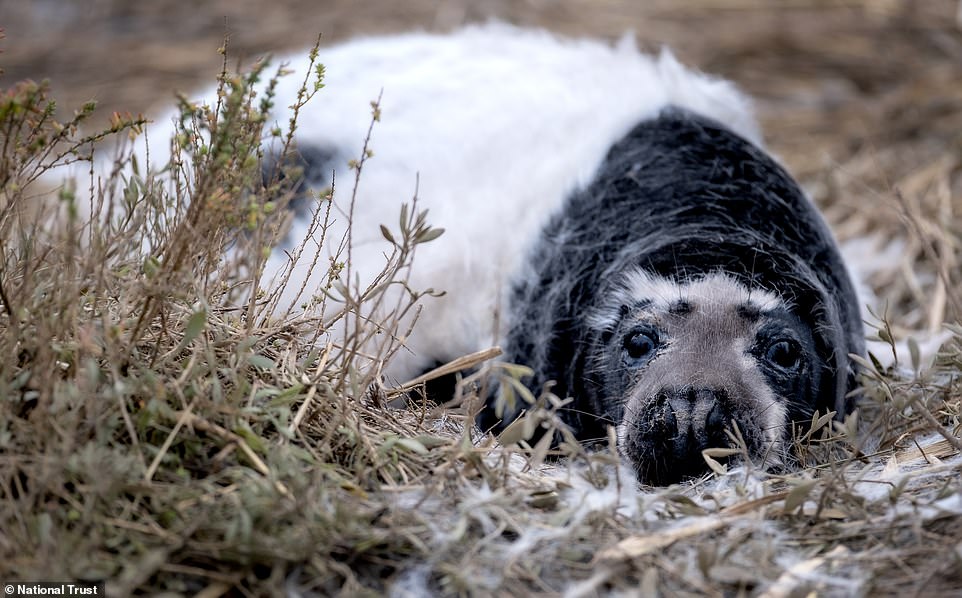
“Like their name suggests, it’s only when they molt a black velvety coat can be revealed.”
“Black seals are rare with research suggesting approximately 1 in 400 grey seals are melanistic.”
“Our rangers have spotted 10 so far this season. Melanism is the increased development of the dark-colored pigment melanin.”
At Blakeney National Nature Reserve in Norfolk, a record 4,000 baby seal pups will be born this year, according to the National Trust.
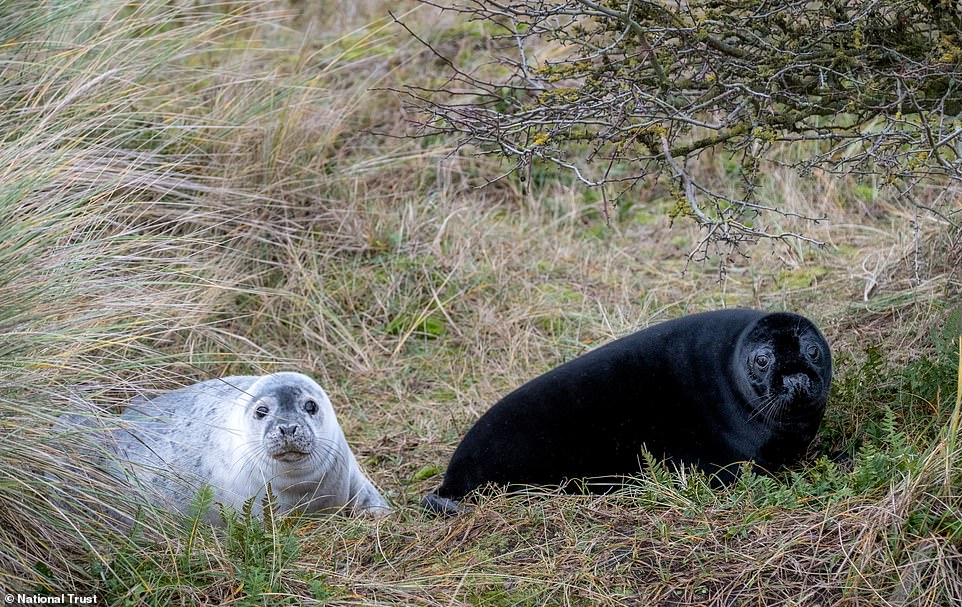
In recent years, the number of seals born at the breeding site has expanded to such a degree that rangers have had to reconsider how they count the seals.
In order to provide an overall picture of how the colony is doing, they will be tallied in a single location.
The National Trust has declared it hazardous to go through the colony, both for employees and for the seals, because of its density.
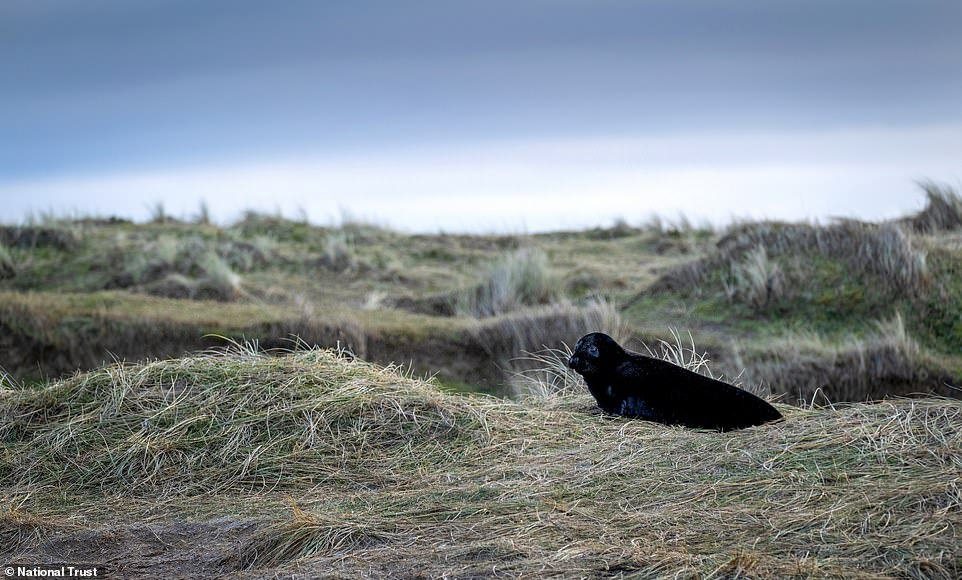
It was in 1988 that the first grey seal pup was discovered at the nature reserve and since then, the colony has expanded from 25 pups born in 2001 to 3,399 puppies in 2019.
There is still a lot of work to be done this season.
The National Trust warns that if you see a seal or a seal pup, you should stay your distance.
“If you ever come across a seal or a pup, please keep your distance and do not approach or disturb these wild animals in any way, as this may cause unnecessary stress.”











